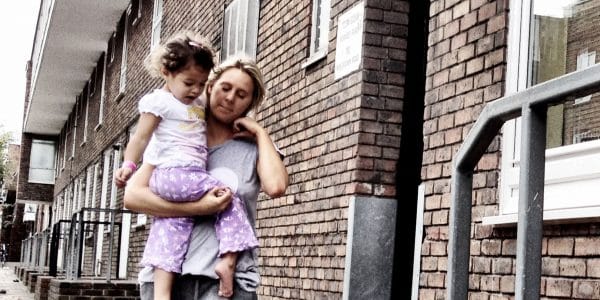
23/06/22
2 min read
New research carried out for the IFS Deaton Review of Inequalities finds that despite unprecedented public investments over the last 20 years, disparities in early child development remain high.
The study, funded by the Nuffield Foundation, explores how early child development shapes outcomes in later life and is part of a broader project aimed at developing a holistic picture of inequality in the UK.
Noting the role of socio-economic and environmental factors, it compares the gaps in early cognitive, social and emotional development, finding that little ground has been gained between children born in the early 2000s and those born in the early 2010s.
While public spending in this area has grown significantly, the authors point out that the majority of this much-needed funding is directed toward childcare rather than the family home, where the majority of challenges to development are experienced. The lack of change, they argue, indicates the complexity of the factors affecting early childhood and the need for a more integrated approach that lays strong foundations for families.
Other key findings include:
- Children’s skills develop highly unequally in the early years, with differences strongly related to family background, such as household income.
- Large differences in the material, emotional and educational aspects of the home environment are key to explaining many of the inequalities in children’s early skills. Parental mental health and frequency with which parents read to their children are two examples.
- The early years shape later life outcomes to a remarkable degree, including earnings as adults.
Eleanor Ireland, Education Programme Head at the Nuffield Foundation, said:
‘Widening inequalities as a result of the COVID-19 pandemic and the cost of living crisis have made it even more crucial that families with young children are given adequate support. A holistic approach to early childhood is needed that will provide families with parenting support, access to mental health services, boosted family incomes and improvements to the physical environments in which children are raised. This support could help to close the disadvantage gap and improve outcomes for children throughout their lives.’
Sarah Cattan, Associate Director at the Institute for Fiscal Studies and an author of the new research, said:
‘It is disappointing that socio-economic gaps in early development changed little when comparing children born in the early 2000s with those born in the early 2010s, especially amid concern that the pandemic has held back development and may have widened gaps further. But we know, through many examples of well-crafted and effective early childhood policies which are emerging around the world, that progress is possible. There is real potential for early childhood intervention to boost development, especially among the disadvantaged. It does, however, require careful design, with consideration of the multiple barriers that hold back the most disadvantaged children.’
Professor Alissa Goodman, Director of the UCL Centre for Longitudinal Studies and an author of the research, said:
‘The environments that children are raised in, and their development of cognitive, social and emotional skills early in life, are not only key determinants of their experience of childhood – they also profoundly shape their prospects as adults. Early years policies in the UK need to focus more on supporting families during the earliest years (ages 0–2), including through adequate income and housing, ensuring high-quality mental health care, and supporting early parenting, attachment and relationships during this vital period.’





















































